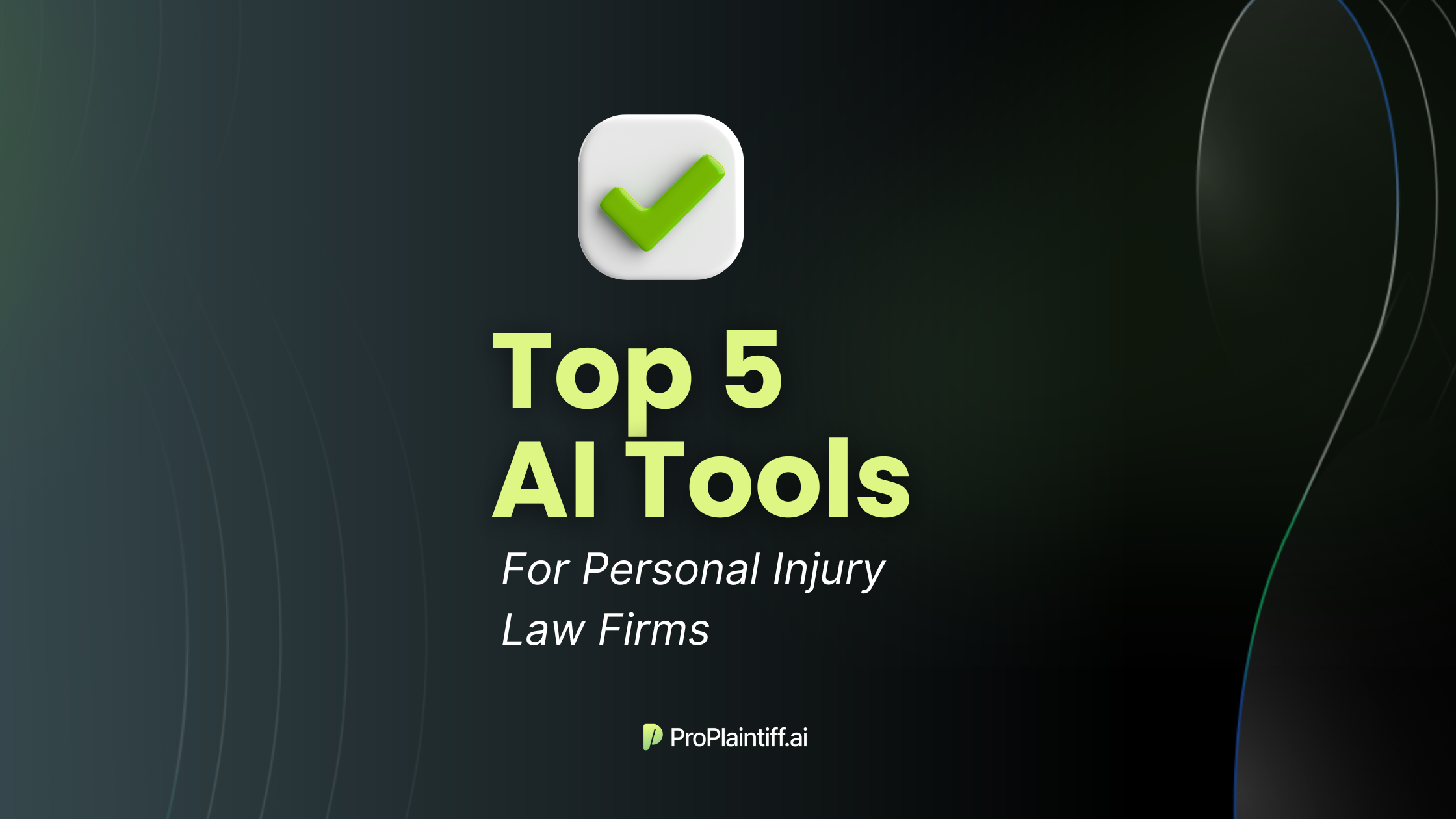Other Blogs
Check out other Legal AI Posts

AI tools for personal injury law firms. Streamline case management, document review, and client communication with AI-powered legal tech tailored for PI attorneys.

Personal injury law demands meticulous handling of sensitive information such as medical records, case files, police reports, and more. As law firms increasingly adopt AI tools to streamline operations like client intake, document review, and demand letter drafting, understanding how AI can assist personal injury attorneys means the difference between a helpful tool and a legal nightmare. That’s where HIPAA and SOC 2 compliance come into play.
Choosing the right AI solution relies on trust and compliance. Tools integrated into your workflow must be HIPAA-compliant to protect personal health information and SOC 2-certified to ensure rigorous data security protocols. This guide will help you identify the most effective, secure AI tools for personal injury law, with a focus on functionality, compliance, and practical implementation.
When selecting AI tools for your practice, look for solutions that solve real workflow bottlenecks without compromising client data security. Here are five industry-relevant, AI-powered platforms designed to enhance productivity, accuracy, and client satisfaction in personal injury law firms:
A powerful legal AI platform built specifically for personal injury lawyers.
This tool turns complex medical data into usable legal insights.
Perfect for law firms overwhelmed by paper trails and email attachments.
Elevate how your firm handles inbound and outbound communication.
Turn client service into your competitive edge.

There are plenty of other AI tools out there for legal professionals nowadays, but what about when it comes time for implementation? Here are some guidelines for identifying the bottlenecks to your legal workflow and how to best implement AI to streamline them:
Start by mapping out where your firm loses time or accuracy:
Only consider tools that meet critical legal and ethical standards:
Don’t commit without testing how well the tool fits your workflow:
Choose tools that integrate easily with your existing systems:
Successful adoption depends on how you implement:
If you're serious about modernizing your personal injury firm, there's no better place to start than ProPlaintiff—the all-in-one AI-powered solution built specifically for PI attorneys. From document generation and case tracking to client communication and secure data management, ProPlaintiff helps you work smarter, not harder.
Start your 7-day free trial now and see how ProPlaintiff transforms the way your firm operates—securely, efficiently, and with compliance built in.
ProPlaintiff is an AI-powered case management and document generation tool built exclusively for personal injury law firms. It automates tasks like demand letter creation, case tracking, and document organization, giving you more time to focus on strategy and client service.
Yes. ProPlaintiff is fully HIPAA-compliant and SOC 2-certified, ensuring that your firm meets the highest standards for protecting sensitive health and legal data.
Most firms can get up and running in less than an hour. With intuitive onboarding, ProPlaintiff integrates seamlessly into your existing workflow with minimal disruption.
Absolutely. ProPlaintiff was designed for team collaboration and includes role-based access so attorneys, paralegals, and admin staff can work together efficiently and securely.
After your trial, you can choose a subscription plan that fits your firm’s size and needs. There’s no obligation to continue, and you can export any data you've created during your trial.
Yes. ProPlaintiff offers integrations with many commonly used legal platforms, including calendar tools, email, and e-discovery systems. Custom API access is also available for advanced workflows.
Check out other Legal AI Posts
